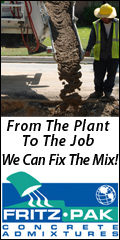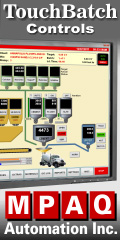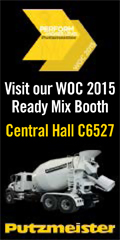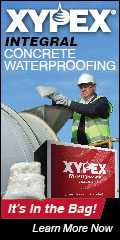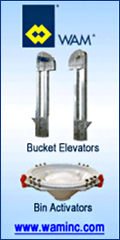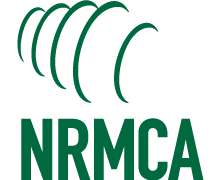
| Archive | nrmca.org | E-Store | Conferences & Events | Certifications | InFocus | Membership Directory |
NRMCA Attends ASTM Committee Meetings, Provides Updates The following is a summary of activity at the ASTM meeting of Committees C09 on Concrete and C01 on Cement held last month in Toronto and attended by NRMCA staff.
C09.20 Concrete Aggregates - A specification for mineral fillers for use in concrete continues to progress through the ASTM balloting process. The balloted version received several negatives that will need to be resolved. This specification will support the use of mineral fillers in concrete, which may be used in self-consolidating concrete or for other purposes. Revisions are in progress, primarily clarifications, for new method ASTM C1777 – to determine the methylene blue index of fine aggregate samples. Revisions to ASTM C127 and C128 – to determine relative density of aggregates are in the works. A revision is being proposed to ASTM C123 to permit alternative less hazardous heavy liquids for determining lightweight particles in aggregates. Revisions to the procedure are being proposed to ASTM C1252 to improve the repeatability determining the uncompacted void content of fine aggregates. The subcommittee discussed a proposal to include definition of a term "recycled aggregate" in Specification ASTM C33, with the intent to indicate that these materials are permitted. As proposed the definition will include byproduct from manufactured aggregate. No changes to the existing requirements in C33 for aggregates were proposed.
C09.26 Chemical Reactions - A revision was approved to ASTM C1260 to provide additional details on the procedure of measurements. The subcommittee discussed information on leaching from concrete prism specimens in ASTM C1293 and the impact on the results. There is an attempt to merge ASTM C1105 (typically used to determine alkali carbonate reactions) and C1293 (used for alkali silica reactions). CCRL proposed developing a proficiency sample for ASTM C1260 tests for laboratories to evaluate their expansion results; this was generally supported by the subcommittee.
C09.40 Ready Mixed Concrete - There were some minor revisions to ASTM C94 approved – density terminology for lightweight concrete and terminology for testing agencies. A new specification for reuse of returned concrete received several negatives that were addressed and a revised specification will be balloted. The subcommittee continues to work on other revisions to C94 to include revisions to the scope of the document and the purchaser's responsibility when ordering concrete; ordering heavyweight concrete; changes to the air content table; several revisions to the section on batching concrete and revisions to the appendix for strength overdesign.
C09.50 Risk Management for Alkali Aggregate Reactions (AAR) - The subcommittee used an administrative process to resolve negatives for its new document Determining Reactivity of Concrete Aggregates and Minimizing Risk of Deleterious Expansion. The document will be approved subject to a challenge on the process. The document is similar to the AASHTO provisional standard PP65.
C09.60 Fresh Concrete Tests - Revision was approved to C138 on Density of Fresh Concrete that outlines the method of calculating the gravimetric air content. C173 on volumetric air content was revised to describe measurement accuracy for air content exceeding 8%. Revisions to procedures are in the balloting process for C143 (measuring slump cone), C138 (weighing the empty measure in a damp condition) and C172 on sampling (clarify the location of the sample from volumetric mixers). An involved inter-laboratory study has been completed to develop a precision statement for the pressure air method, C231.
C09.61 Strength - Minor revisions were approved to C192 for making and curing concrete specimens in the laboratory. A revision to C1231 was approved to discard pad caps based on condition of the caps (worn or split). Caps are subject to a reuse limit, typically 100 uses. Revisions proposed to C31 include requiring a density test be performed when cylinders are made, extending the transportation time to 8 hours provided that the initial curing requirements are maintained during transportation, eliminating the use of tin molds, reporting the maximum and minimum temperatures during the field curing of cylinders and some other minor details of the practice. These revisions are in the balloting process.
C09.66 Fluid Penetration - The subcommittee continues to work on finalizing two new test methods: 1. Surface resistivity using Wenner probe which can be used for concrete quality assurance; 2. Mass loss vs. time for one-dimensional drying of saturated concrete which can be used in service life prediction models. Revisions were also balloted to C1585 that measures the Rate of Absorption of Water by Hydraulic-Cement.
C09.98 Evaluation of Laboratories - Revisions to C1077 are addressing certification requirements for technicians and supervisors and the required test evaluations for personnel involved in field tests and laboratory tests. A revision is also addressing the qualification requirements of the professional engineer in responsible charge of a testing agency. Some of these revisions have implications to inspection and accreditation of laboratories.
C01 Cement - Some revisions are in the works for ASTM C150 – Specification for Portland Cement. ASTM C1702 (isothermal calorimetry measurement of heat of hydration) is proposed as an alternate to the previous C186 – heat of solution method – for cements that have an optional limit on heat of hydration. It is also being proposed for chlorides to be reported on a mill test report at the request of the purchaser. The precision of measuring chlorides will be evaluated in future CCRL proficiency sample testing. On ASTM C595 on blended cements, the tolerance on blending percentage is being developed. Other changes include a method for evaluating sulfate resistance of Portland limestone cement (Type IL). Revisions to cement standards are coordinated for concurrent changes to the equivalent AASHTO standards.
For more information, contact Colin Lobo at clobo@nrmca.org or Karthik Obla at kobla@nrmca.org. |
|
|
